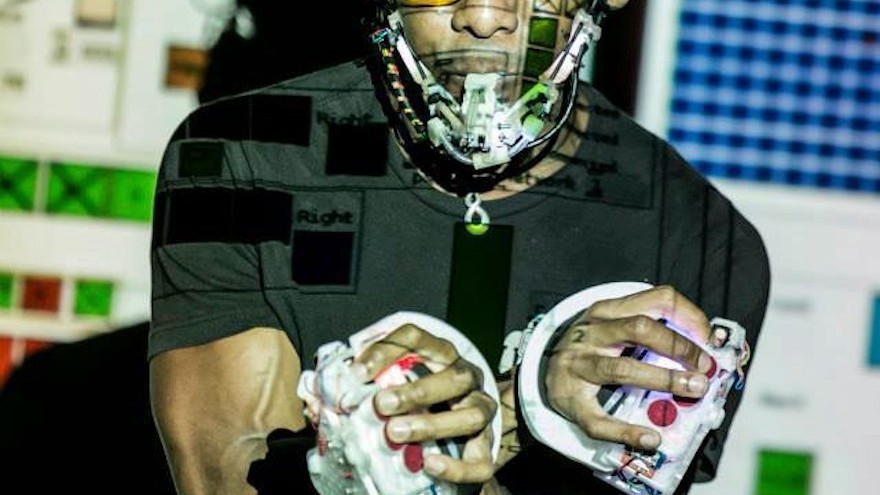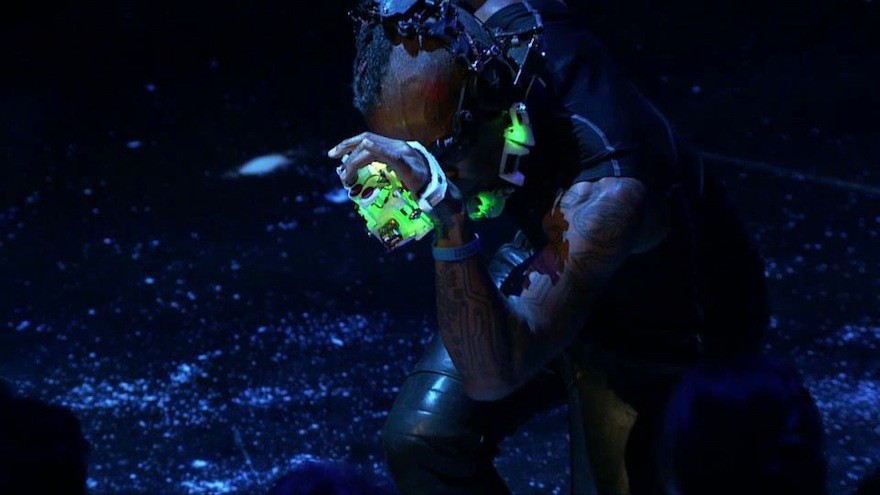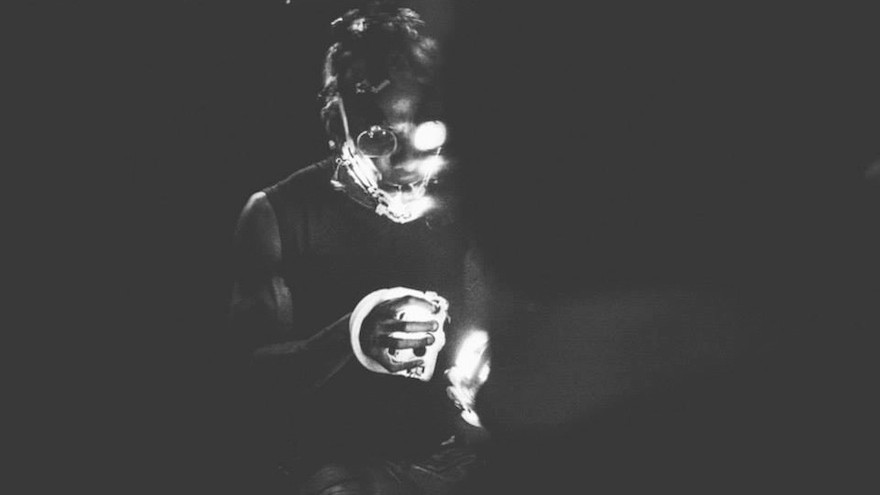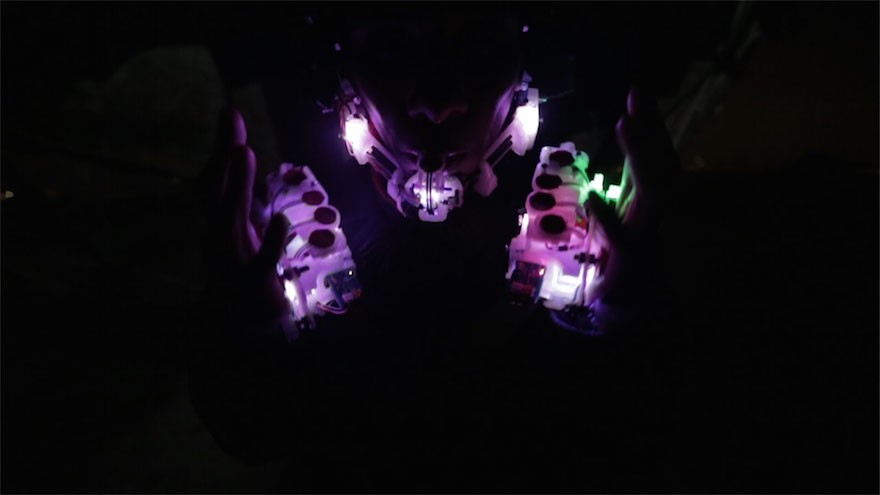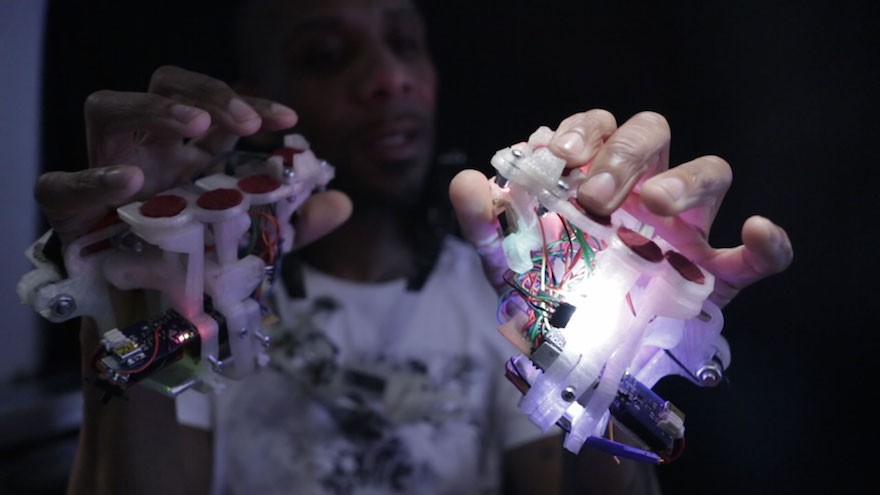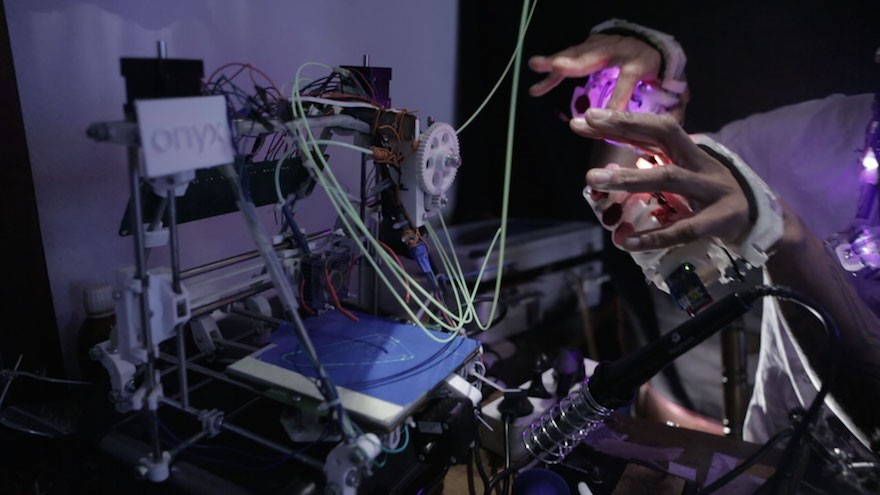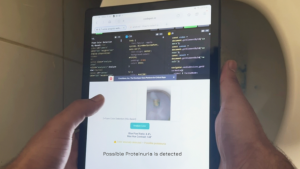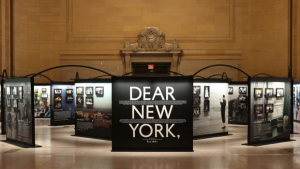Berlin-based musician and inventor (and sci-fi fanatic) Onyx Ashanti has created his own genre of music, which he calls Beatjazz. Describing himself as a cyborg musician, Ashanti states that the music he creates live “cannot be replicated without technology”. He also believes that spoken language is a “sort of simplified music”, that doesn’t engage the full capacity of the human brain.
Ashanti built himself a futuristic musical instrument that wirelessly translates his finger movements, hand gestures and breath patterns into musical data. The first version of the instrument was called the Beatjazz control interface; the most recent version he has christened the exo-voice, which he explains as being a voice from his mind rather his mouth.
The three-way interface of the exo-voice is an interpretation of a digital saxophone and the Beatjazz music Ashanti creates with it is a mixture of live looping, sound design and jazz improvisation that comes together to make an ultra-modern soundscape.
“Over the last four years, the combination of readily available internet access, open source information sharing, software and hardware, and 3D printing has allowed me to do and create things I had no concept of when I began the project,” says Ashanti.
Open source information was a revelation to Ashanti: it opened up the doors to sophisticated designs and complex inventions, which are available for anyone to use and make and then share again.
“There is almost nothing I cannot do with this cheap/free-ish toolchain. Open source tools are evolving so fast that there is something new to interact with almost everyday.”
Ashanti believes that the evolution of communication will leave behind language as we know it: “spoken language isn’t granular enough to form the thought patterns necessary to interact with the next age. Language will have to evolve to be relevant. Programming environments express this. Spoken language can be seen as the nursery rhyme precursors of the languages that are emerging right now. I believe spoken language will sound more like rap music or poetry in the next age.”

